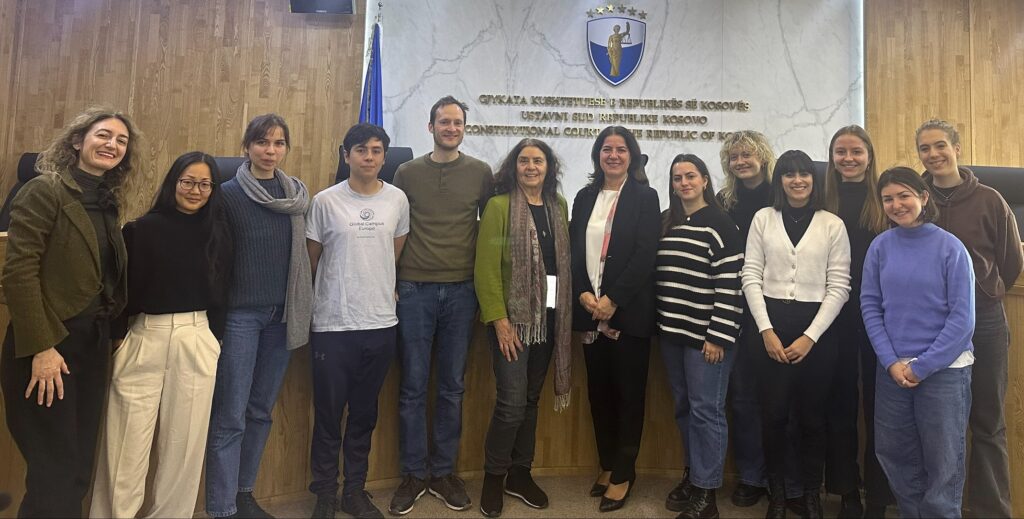Exploring the Impact of Kosovo's Constitutional Court on Human Rights: A Glimpse Through International Students' Eyes

In the heart of Europe, an enlightening exchange unfolded as a cohort of international students embarked on a unique educational journey, delving into the intricacies of human rights and democratization. This group, hailing from the prestigious European Master’s Program in Human Rights and Democratization (EMA), originating from academic hubs in Vienna and Venice, found themselves at the doors of one of Kosovo’s most pivotal legal institutions: the Constitutional Court.
Under the guidance of Judge Remzije Istrefi-Peci, these scholars were welcomed into the hallowed halls of justice, where they were immersed in the Constitutional Court’s critical role within Kosovo’s legal framework. The session illuminated not only the court’s organizational architecture but also the fundamental processes that underpin its operation. Judge Istrefi-Peci meticulously outlined the criteria for case admissibility, the referral submission protocol, and the court’s decision-making journey, emphasizing its dedication to upholding the constitutional order.
A focal point of the discussion was the court’s unwavering commitment to international legal standards, particularly its alignment with the European Court of Human Rights and the European Convention on Human Rights. This adherence underscores Kosovo’s dedication to integrating European human rights jurisprudence into its constitutional review processes, marking a significant stride in its legal evolution.
The encounter provided these international students with an invaluable perspective on how Kosovo’s Constitutional Court acts as a guardian of human rights and democracy. By dissecting the court’s mechanisms for addressing referrals and its historical impact on shaping the nation’s constitutional landscape, the students gained profound insights into the practical challenges and triumphs of implementing human rights principles in a dynamic legal environment.
Moreover, this educational venture highlighted the importance of cross-border academic collaborations in fostering a deeper understanding of global human rights issues. Through direct engagement with legal practitioners and an in-depth examination of Kosovo’s judicial approach to human rights, the students were equipped with practical knowledge and experiences that will undoubtedly enrich their future endeavors in the field of human rights and democratization.
In essence, the visit to Kosovo’s Constitutional Court not only served as an academic excursion but also as a testament to the pivotal role of judicial institutions in safeguarding human rights. As these international students continue their journey, the insights gained from this experience will surely inspire a new generation of human rights advocates, committed to promoting justice and democracy on a global scale.
KEEP IN TOUCH
Ministry of Environment and Spatial Planning (MESP) - Environmental Protection and Water Department (EPWD)
Relindja Building, 15 floor - 10000 Pristina (Kosovo)
Tel/Fax +383-(0)38-20032307 / +383-(0)38-20032003
Muhamet.Malsiu@rks-gov.net
DISCLAIMER
This project is funded by
The Swedish International Development
and Cooperation Agency (SIDA) and is implemented by FCG Sweden
in Consortium with EPTISA (Spain) and with NCG
(Sweden) and RECURA (Kosovo) as subcontractors